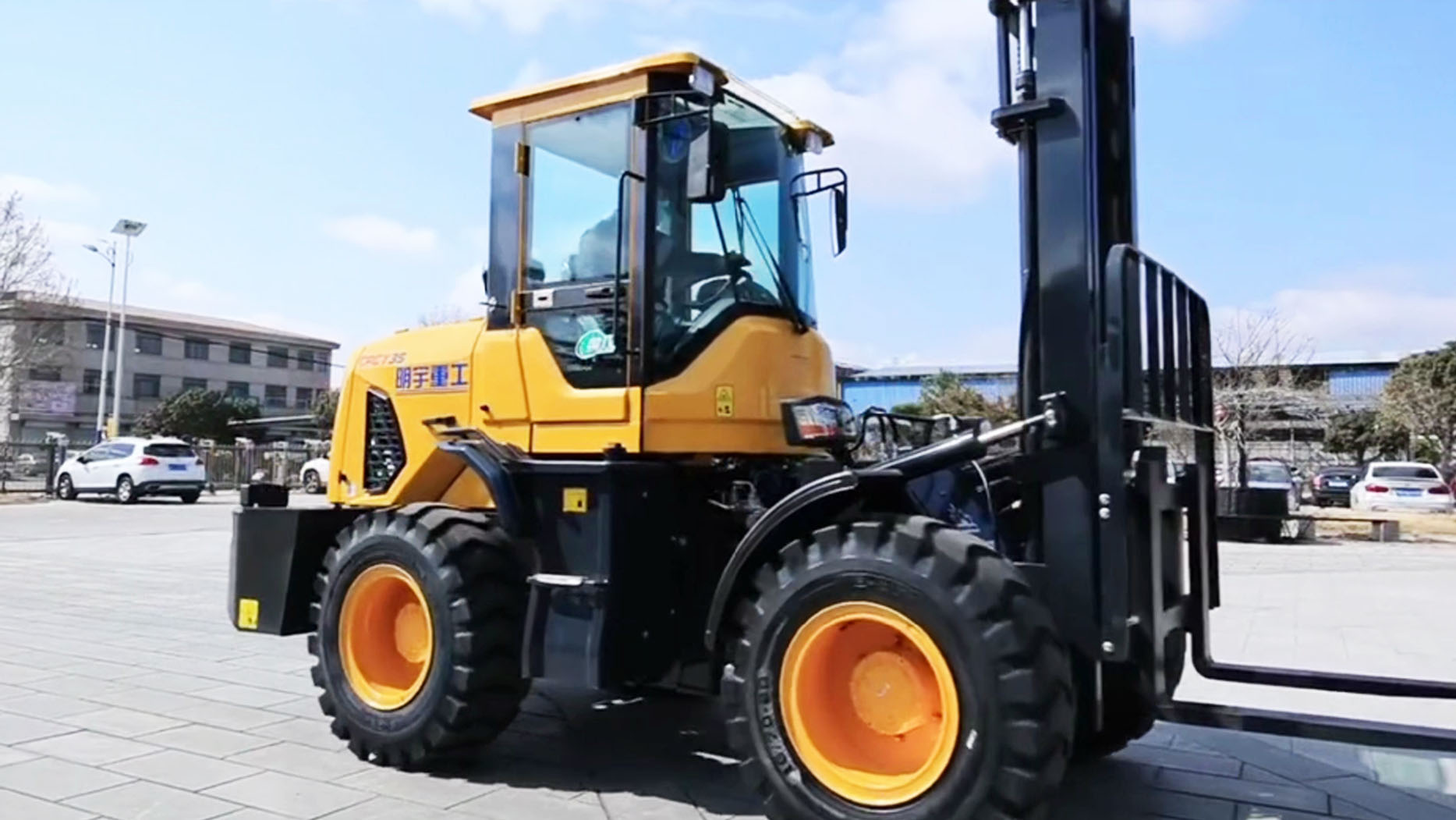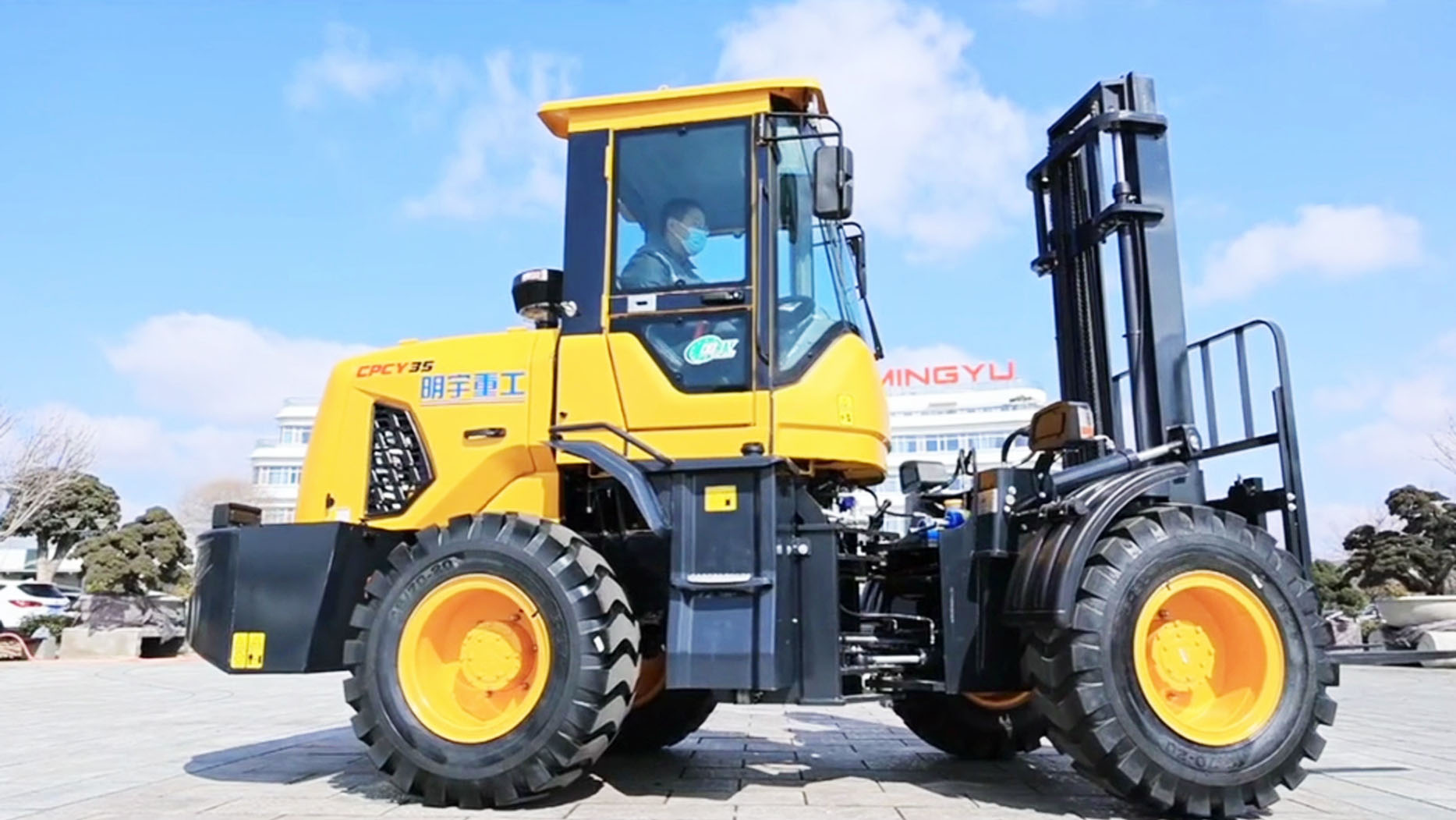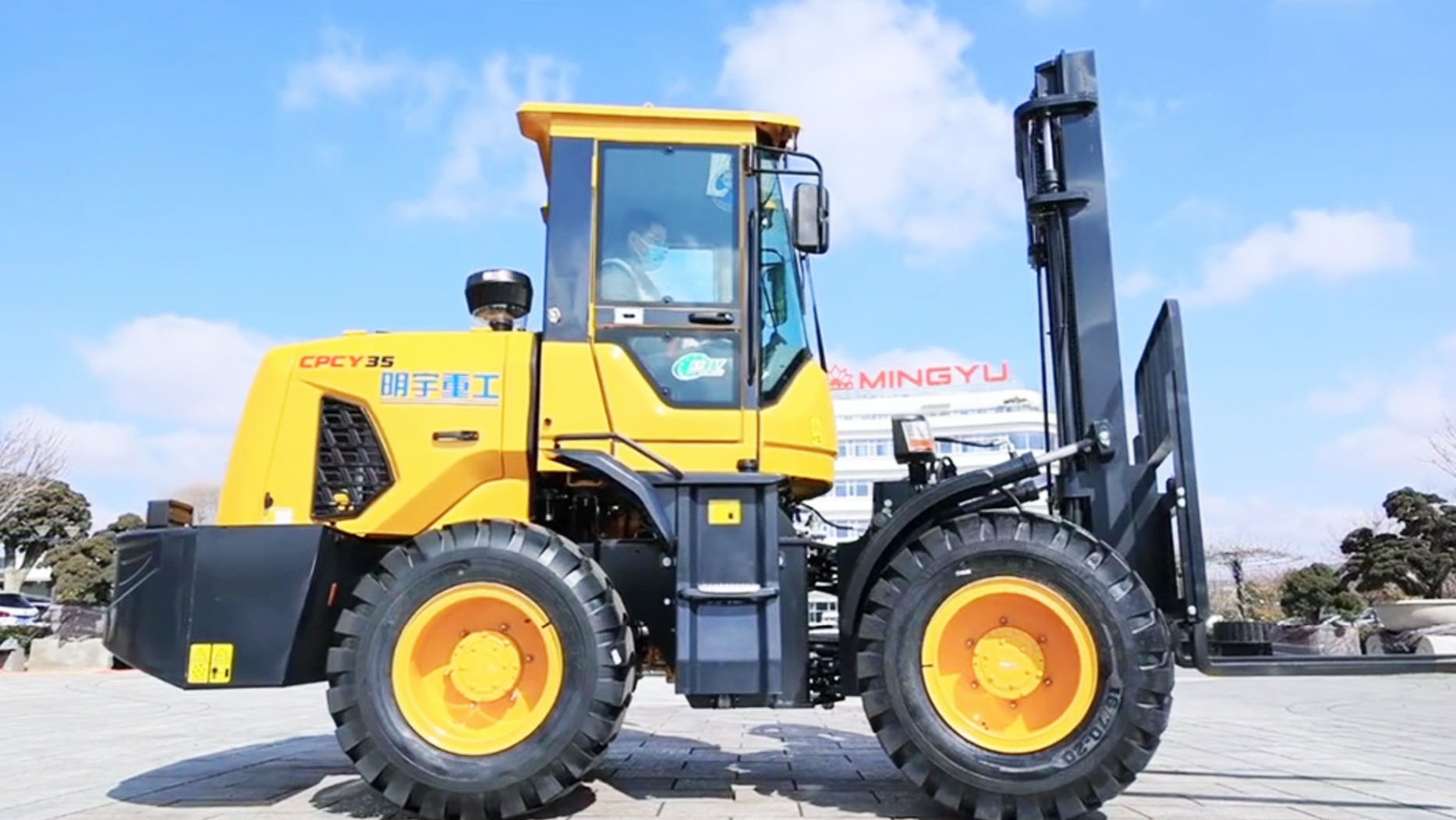While the familiar industrial forklift efficiently glides across smooth warehouse floors, a different breed of material handling equipment steps up when the ground gets tough: the rough terrain forklift. These robust machines are engineered to conquer challenging, uneven, and unpaved landscapes, making them indispensable workhorses in sectors where conventional equipment simply can't operate. Understanding the diverse industries that rely on rough terrain forklifts is key to appreciating their specialized design and critical role in keeping projects moving forward, no matter the conditions.
Unlike their indoor counterparts, rough terrain forklifts are built for resilience, power, and stability on demanding surfaces like dirt, gravel, mud, and sand. Their ability to lift and transport heavy, often awkward loads across such terrains makes them essential tools for a wide array of outdoor-focused operations.
Key Industries and Applications for Rough Terrain Forklifts
The adaptability and ruggedness of rough terrain forklifts make them vital across a broad spectrum of industries. Here are some of their primary sectors and applications:
1. Construction and Infrastructure Development
This is arguably the most prominent and widespread application for rough terrain forklifts. Construction sites are inherently characterized by constantly changing, often unpaved, and highly challenging ground conditions.
Material Distribution: Lifting and moving heavy building materials such as lumber, bricks, concrete blocks, scaffolding, rebar, pipes, and insulation across uneven ground to various work areas. They deliver materials precisely where needed, even on muddy or sloped terrain.
Site Organization: Unloading trucks of supplies and organizing materials on site, ensuring they are accessible to crews without blocking pathways or getting stuck in soft spots.
Rough Terrain Navigation: Their robust tires and suspension (often 4WD for superior traction) allow them to climb ramps, navigate through mud, loose gravel, sand, and over ruts and debris that would halt a standard forklift.
Specialized Tasks: Positioning heavy equipment components, moving generators, handling large tools, or aiding in formwork setup on challenging ground.
2. Agriculture and Farming
Modern farming operations are increasingly mechanized and rely on efficient material handling, often in highly variable outdoor conditions, from soft fields to muddy barnyards.
Harvest Handling: Moving large bales of hay or straw, bins of produce (e.g., potatoes, onions, fruit), and bulk feed bags across fields, often immediately after harvest when ground conditions are least predictable.
Livestock Operations: Transporting feed, bedding, and supplies around barns, pastures, and feeding areas, which are frequently unpaved and can become wet or muddy.
Equipment Loading/Unloading: Assisting with the loading and unloading of farm machinery, implements, and supplies, particularly larger items that require significant lifting capacity and stability on uneven ground.
Building and Maintenance: Aiding in the construction or repair of farm structures, fences,

3. Lumber and Timber Yards
Handling heavy, often irregularly shaped, and wet timber products requires robust and stable equipment that can operate on rough, debris-strewn ground.
Log and Lumber Handling: Moving freshly cut logs from delivery trucks to processing areas, or transporting bundles of finished lumber within the yard or to loading docks.
Rough Yard Navigation: Operating on unpaved, often splinter-laden and uneven yards, where puncture resistance and superior traction are vital.
High Stacking: Lifting heavy timber bundles to significant heights for efficient and stable storage.
Outdoor Exposure: These forklifts are designed to withstand continuous outdoor use in all weather conditions, from rain to snow, essential for year-round lumber operations.
4. Mining and Quarrying Operations
These are some of the most demanding and abrasive environments for any machinery, and rough terrain forklifts play a key support role.
Material Handling: Moving smaller quantities of raw materials, blasting supplies, equipment, and consumables around rugged mine or quarry sites that are constantly changing.
Support for Heavy Machinery: Assisting with maintenance tasks on larger mining equipment by lifting components, tools, or supplies in difficult-to-access areas.
Extreme Conditions: Built to operate reliably in dusty, rocky, and often remote locations, handling abrasive materials and navigating challenging inclines.
5. Energy Sector (Oil & Gas, Renewable Energy)
The development and maintenance of energy infrastructure, especially in remote areas, frequently requires specialized material handling.
Pipeline Construction: Moving and positioning sections of pipe over varied terrain.
Oil & Gas Field Operations: Transporting drilling equipment, supplies, and tools across unpaved and often muddy or sandy oil and gas fields.
Renewable Energy Sites: Assisting in the construction of wind farms (moving turbine components, tools) or solar farms (panels, racking systems) across undeveloped land.

6. Event Management and Festivals
Large outdoor events, concerts, and festivals often require moving heavy equipment and supplies across varied and temporary ground coverings.
Setup and Teardown: Transporting stages, lighting rigs, sound equipment, temporary structures (tents, seating), and fencing across grassy fields, gravel lots, or temporary roadways.
Logistics Support: Moving catering supplies, waste bins, generators, and other operational necessities throughout the event grounds.
Versatility: Their ability to operate on temporary ground coverings or natural terrain without getting bogged down is invaluable for timely setup and dismantling.
7. Military and Humanitarian Aid Operations
In situations where infrastructure is damaged, non-existent, or rapidly deployed, rough terrain forklifts are critical for logistics.
Logistical Support: Unloading cargo from transport planes or ships in remote or disaster-stricken areas where traditional docks or paved surfaces are unavailable.
Material Distribution: Moving essential supplies, medical aid, and equipment across challenging, often damaged, landscapes to areas in need.
Robustness: Designed for reliability, ease of transport, and minimal breakdown in harsh, unpredictable environments, often featuring a forklift diesel engine for consistent power.
The Advantage of Specialization and Brands like MYZG / MINGYU
The effectiveness of a rough terrain forklift in these demanding applications is rooted in its specialized design:
Robust Chassis: Built to absorb shocks and withstand the twisting forces of uneven ground.
Powerful Engines: Almost universally forklift diesel engines that deliver high torque for heavy lifting and climbing.
Enhanced Traction: Large, deep-tread tires, often with 4WD, ensure grip on slippery or soft surfaces.
High Ground Clearance: To avoid obstacles and navigate deep ruts.
Stability: Designed to maintain balance even on slopes or uneven ground, enhancing safety.
Versatility with Attachments: While standard forks are common, they can also utilize attachments like buckets, grapples, and personnel platforms for specialized tasks.
 Manufacturers like MYZG and MINGYU (often referring to the same or similar Chinese heavy equipment groups) play an increasingly vital role in these industries by offering a range of robust and cost-effective rough terrain forklifts. Their models, including various capacities up to a forklift 3 ton diesel and even smaller mini forklift options, provide accessible solutions for businesses that need durable equipment without the premium price tag of some top-tier global brands. This makes the benefits of powerful, all-terrain material handling available to a wider array of companies across these demanding sectors.
Manufacturers like MYZG and MINGYU (often referring to the same or similar Chinese heavy equipment groups) play an increasingly vital role in these industries by offering a range of robust and cost-effective rough terrain forklifts. Their models, including various capacities up to a forklift 3 ton diesel and even smaller mini forklift options, provide accessible solutions for businesses that need durable equipment without the premium price tag of some top-tier global brands. This makes the benefits of powerful, all-terrain material handling available to a wider array of companies across these demanding sectors.
In conclusion, rough terrain forklifts are far more than just standard forklifts with bigger tires. They are purpose-built machines designed to excel in the most challenging and unconventional material handling environments. From the heavy lifting on a construction site to navigating a muddy farm or deploying essential aid in a disaster zone, these robust vehicles are essential for ensuring productivity, safety, and efficiency where the paved path ends. Their specialized design and the growing accessibility offered by brands like MYZG / MINGYU solidify their indispensable role across a multitude of industries.
Post time:Jul.15.2025
